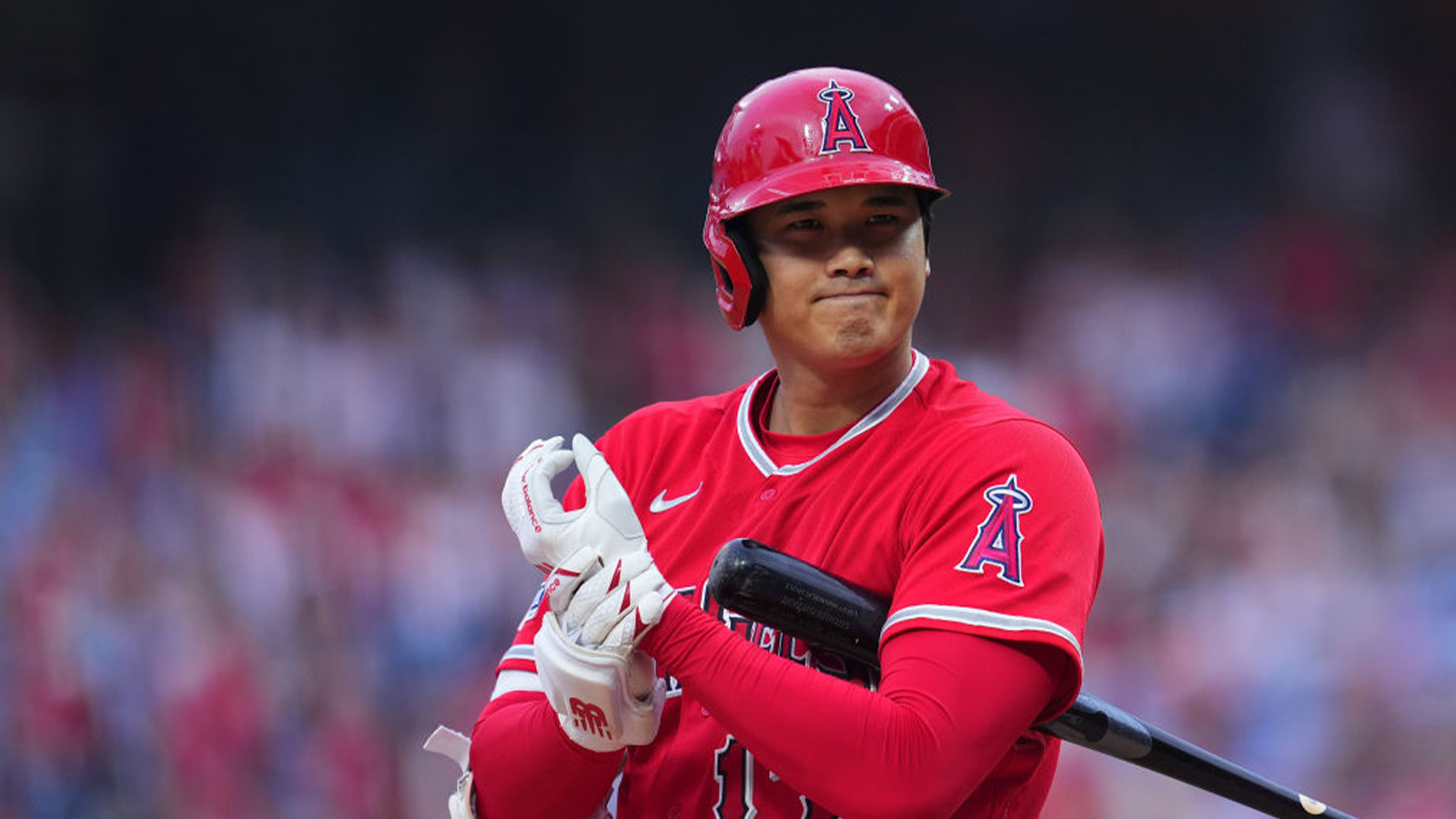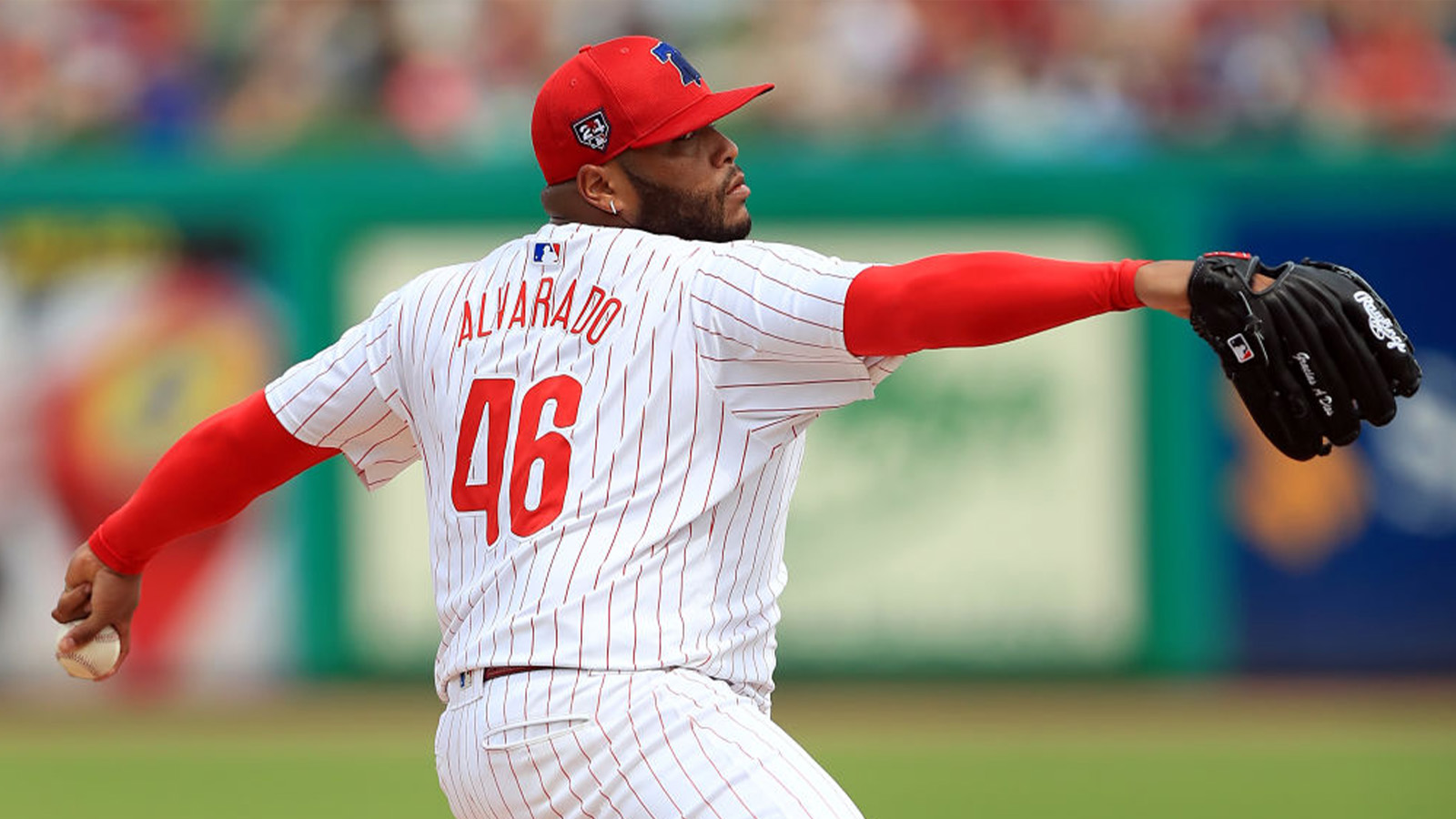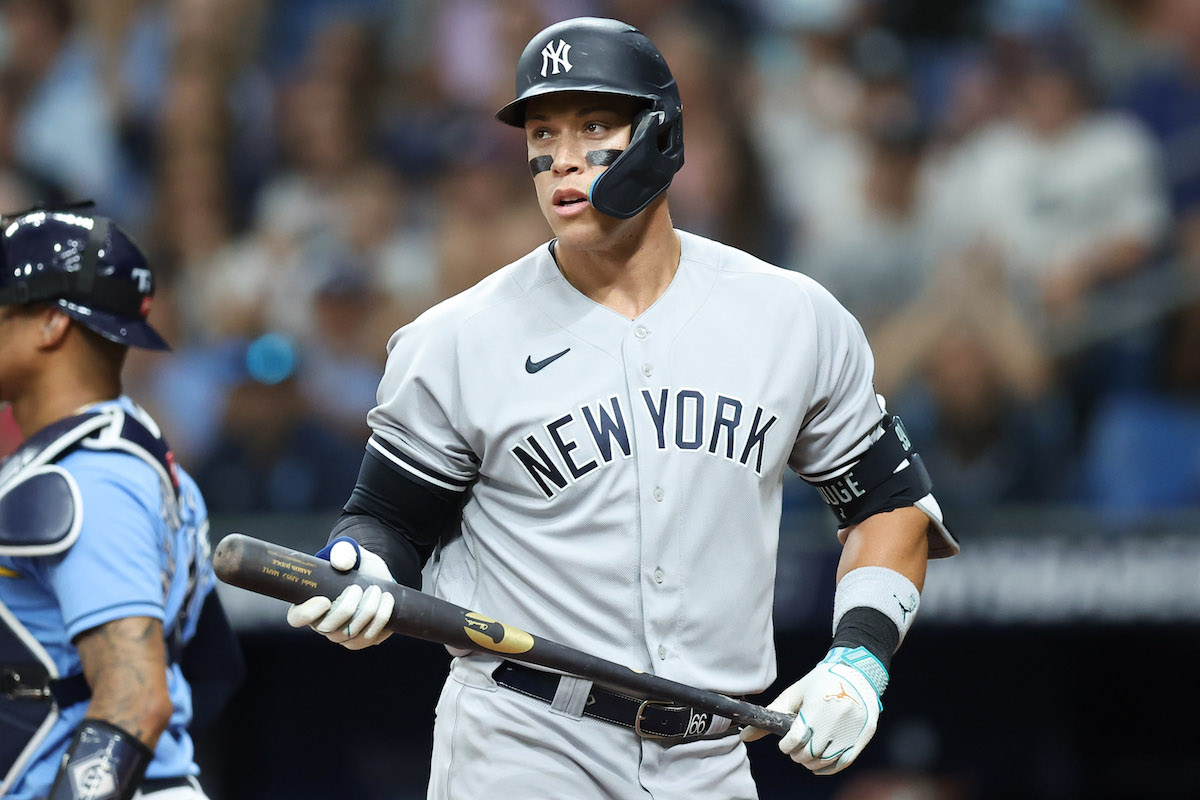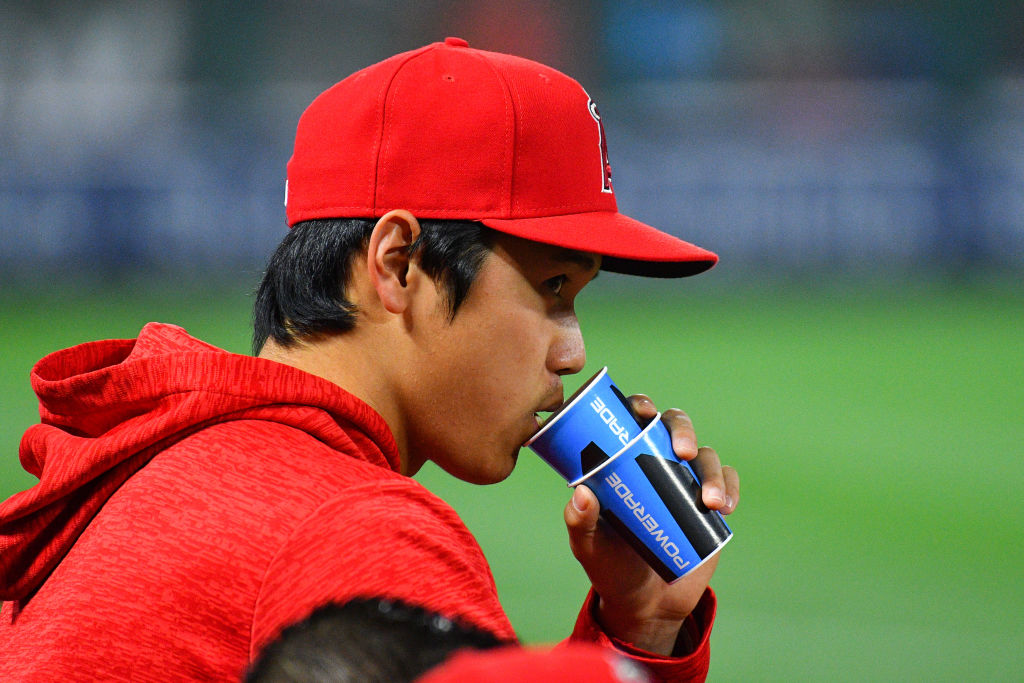
Why Do Baseball Players Spit so Much?
Baseball players aren’t necessarily known for being the most hygienic athletes around. As you’ve probably noticed when you watch games, they have a tendency to spit quite a bit during the three hours or so that they’re playing. If they’re not spitting, they’re usually chewing on something — tobacco, sunflower seeds, or gum most of the time. So the question is why do baseball players spit so much? A big reason for it is because it is part of the tradition of the game.
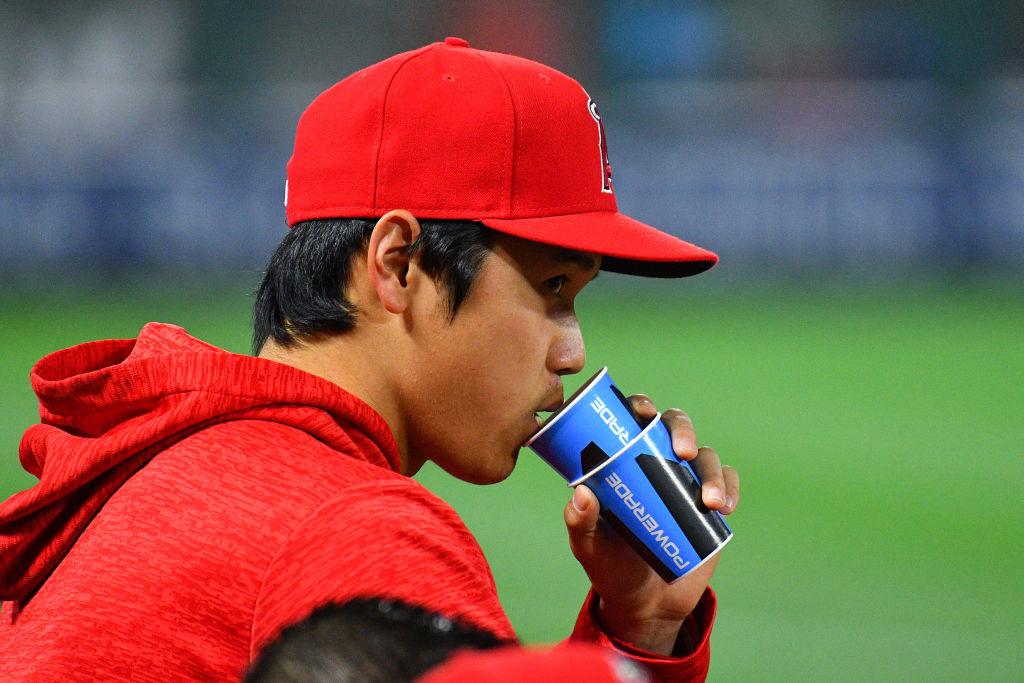
A tradition of baseball players spitting
Using chewing tobacco was a common practice as far back as the 1800s — both on and off the field. Players used the chew to stimulate their saliva on the dusty field, then when they spit it out they’d use the spit to moisten their gloves.
As time went on and the dangers associated with chewing tobacco became more known, players started turning to sunflower seeds and gum to get the same effect. Former Minnesota Twin Tony Oliva has said dugouts were dirt when he first started in the majors, so players never had a problem spitting on the ground.
Though he says he never chewed tobacco, many of his friends did. “When you play the game, you have to have something to entertain you, otherwise your brain goes crazy,” according to the retired outfielder, who played from 1962-1976.
Chris Colabello acknowledges the tradition of spitting, recalling when he was a kid. “You saw guys on TV spit, you want to spit like the big league ballplayers. When you’re 5 running around, you go out and spit.”
The use of chewing tobacco declines
Players started to use chewing tobacco less and less in the 1970s and ’80s, with chew becoming even less popular in the subsequent decades as players became concerned about the negative effect it had on their health. And there isn’t much chewing tobacco use anymore after a 2011 agreement between MLB and the players’ union.
As part of the deal, players agreed not to use chewing tobacco where fans can see them, hoping to keep kids from seeing them chew on tobacco and be encouraged to start doing it themselves. Some players do still use chew when and where they can, but most of them have turned to sunflower seeds and chewing gums as the replacement for chewing tobacco.
In 2016, the league and union agreed to a new collective bargaining agreement that banned new players entering the league from using chewing tobacco entirely, and all 30 stadiums now ban the use of smokeless tobacco on their premises.
Sunflower seeds and chewing gum
Sunflower seeds also have a long tradition in the sport. One reason for their popularity is because they are packaged in small plastic bags that are easy for players to roll up and keep in their back pocket. That makes for easy access when they want to throw some seeds into their mouth while they’re in the field.
Chewing on sunflower seeds is a harmless habit that doesn’t have any of the side effects or negative health consequences that chewing tobacco does, so it’s something that a player can chew on and spit out from when they’re a kid all the way to the majors. And spitting the shells onto the field isn’t dangerous because they’re so small they don’t pose any risk to injure the players.
Chewing gum is in the same boat as the seeds, a habit that a player can take up at a young age in little league and continue chewing on gum while he’s making millions as a major leaguer. Unlike tobacco, the league and union won’t be setting limits on or banning sunflower seeds or chewing gum anytime soon.
